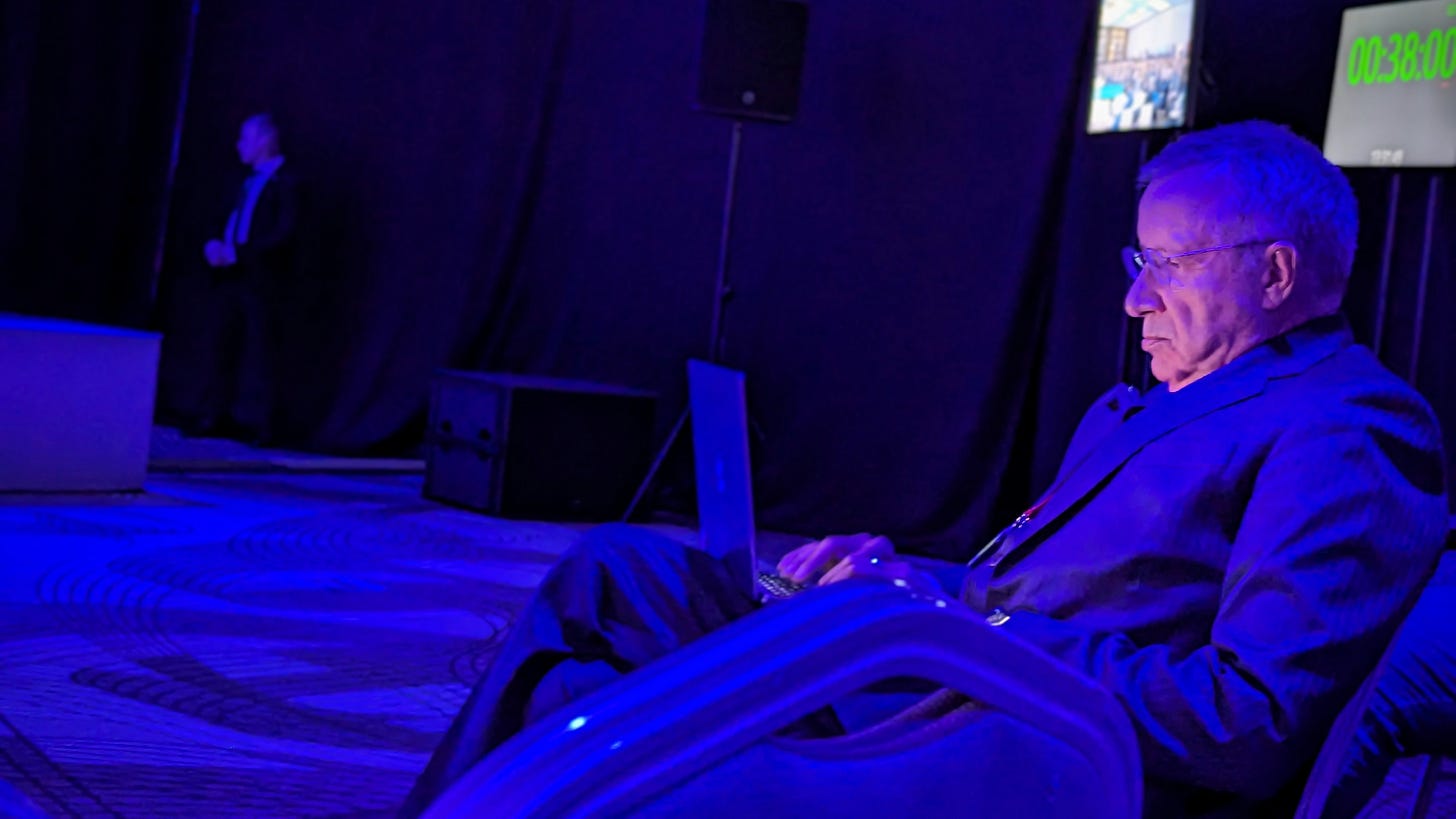1. The tiger that roared
Did you know Skype was Estonian? At least that’s the story I heard on my first trip to Estonia in 2004. It’s closer to the truth to say Estonians did the coding work while executives from Sweden and Denmark set up the company. But there were Estonians who were able to do the coding work in 1999 because, in the short decade since their country became independent from the collapsing Soviet Union, it had been through a digital revolution.
The architect of that revolution was a dapper graduate of American prep schools and universities who became Estonia’s foreign minister in the 1990s, Toomas Hendrik Ilves. (Before he was foreign minister, he was Estonia’s ambassador to Washington, with concurrent responsibility for Ottawa. “I presented my credentials to a governor-general, Hnatyshyn, who didn’t speak a word of Ukrainian,” he marvelled to me in a 2014 interview.) Later he became Estonia’s president, a post he held from 2006 to 2016. In that last role, which capped his political career, he became Estonia’s Cassandra, warning complacent Western democracies that Putin’s Russia wouldn’t be content with half-invading Georgia or occupying only Crimea.
To parry the Russian threat, Estonia and the other, more populous Baltic countries, Latvia and Lithuania, had to get into NATO. To be sure of getting into NATO, they had to get into the European Union. And to be attractive candidates for EU accession, they had to ascend from their status as Soviet-occupied backwaters to modern, transparent, effective market democracies. To Ilves, whose role model in high school had been a teacher with a not-yet-fashionable interest in computers, the answer was obvious. Germany and the rest of Western Europe were saddled with information technology from the ’80s and even ’70s. Estonia would get newer tech, bet huge on the still-fledgling internet, and race ahead of the big slow democracies. The move was called the “Tiger Leap,” and Ilves has always been as happy to talk about that as about the threats that Estonians never stop worrying about. To me it’s an inspiring story, if nerdy. Like so many stories from the democratic and market transitions of the 1990s, it’s about a country that was done being done to, and impatient to be the subject of some sentences instead of the eternal object. Some of those early hopes were eventually dashed, but the example of those young democracies should always inspire us.
So when I sat down with Ilves at the Munk School this month, we started by talking about the early days of the internet and of Estonian democracy. We soon moved on to discussion of the Ukraine war and its likely repercussions. I’ve written a lot about these issues — including from the Warsaw and Halifax conferences Ilves attended this fall — but his perspective is tremendously valuable.
You can listen to this episode on Apple Podcasts and a bunch of other platforms via the “Listen On” button at the top of this post. You can download any episode to listen to it later, via the same “Listen On” button. If you listen on a podcast platform, smash those “Like” and “Subscribe” buttons, and leave a good review, to help spread the word. You can read a (machine-generated) transcript of this week’s episode via the "Transcript” button right over the photo at the top of this page.
As always when we want to do a live podcast episode in Toronto, it was a pleasure to be the guests of our friends at the Munk School, an organization that is also the principal patron of this podcast. Antica Productions turns it all into a podcast every week. Thanks to all of them and to you. Please tell your friends to subscribe to The Paul Wells Show on their favourite podcast app, or to become paid subscribers to this newsletter, where most episodes contain bonus material you can only get here.
2. Olivia Chow’s new deal
Last week’s podcast episode was about Toronto mayor Olivia Chow and her efforts to get other levels of government to take up some of the responsibilities, or contribute some of the revenues, that would allow her to close a stubborn fiscal gap.
Turns out that episode was a good primer, and just in time, for what happened next. This week Chow and her improbable co-conspirator, Ontario premier Doug Ford, announced that Ontario is taking over responsibility, and footing the bill, for the Don Valley Parkway, the Gardiner Expressway, and Ontario Place. (For readers who live even farther out of town than I do, that’s two highways and a tired sort-of amusement park.) The deal will lighten Toronto’s fiscal load by billions of dollars. It skates the city’s many Liberal MPs, most of whom endorsed Chow’s closest rival for the mayoralty, offside. And it cements Chow’s reputation as a leader who doesn’t just talk a big game, but who has managed in the early innings to deliver.
3. “The Royal Canadian Navy is in a critical state.”
Have a look at this astonishing video, published by the Royal Canadian Navy on their official Youtube channel, narrated by Vice-Admiral Angus Topshee, the Commander of the Navy. We’ll be discussing it here soon. Frankly we had better not be the only ones. When the commander of the Navy says the things that he says here, it should be a major story.
4. We’re puttin’ on a show
I’m still filling out the agenda for the special live year-end recording of The Paul Wells Show, which will take place at the National Arts Centre on Dec. 11. Paid subscribers get first dibs on reserving free tickets. [UPDATE, WEDNESDAY AFTERNOON: In barely a day and a half we’ve filled the room with reserved guests. So I’m afraid we can’t take more. The good news is, this level of response guarantees future events along these lines, and not only in Ottawa.] My guests will include a rising young MP, a distinguished former diplomat, one of the country’s best jazz singers… and a poet of epic dystopia in verse. That’s right, Jason Guriel will be joining us to read from his epic and occasionally rhyming tale of a future world without a Newfoundland, The Full-Moon Whaling Chronicles. Details about the rest of the evening’s festivities are here, along with a chance for paid subscribers to book their free tickets.













